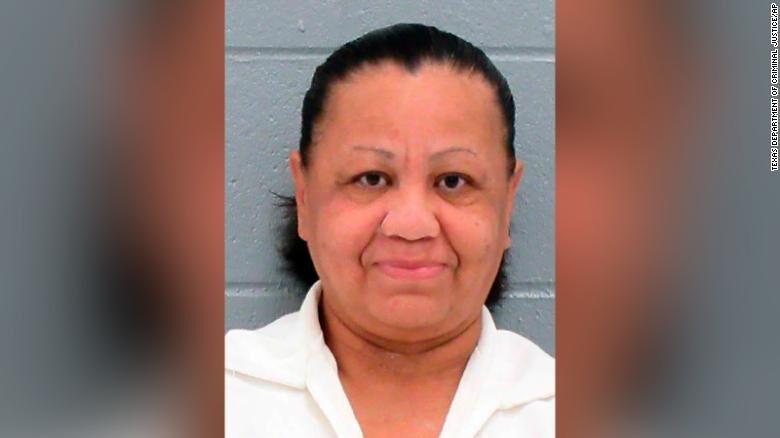In February of 2007, two-year-old Mariah Alvarez was found dead at her mother’s house. Her mother, Melissa Lucio, was arrested for murder and has been in prison on death row since 2008. This mother of 14 was scheduled to be executed by the state of Texas on Wednesday, April 27, 2022. But by every indication, Lucio is innocent. All around Texas, the U.S. and Texas A&M, people have been doing everything they can to clear her name and save her life.
Lucio’s children have vehemently maintained their mother’s innocence, claiming their sister Mariah had instead fallen down stairs several days prior to dying of cerebral hemorrhage. In fact, they claim that apart from some pinches and spankings, their mother had never hit or beat them at all.
In custody, Lucio denied murdering her daughter over 100 times. Over the course of a seven-hour interrogation, on the same day of her daughter’s death, Lucio was coerced into making a false confession.
It’s easy to imagine how one could crack in this situation, especially after hours of questions like, “Now, are you a cold-blooded killer or were you a frustrated mother who just took it out on her?”
There has been a national outcry over Lucio’s scheduled execution, which has since been halted as of April 25. On Saturday, April 23, there was a National Day of Action in cities all over the country protesting the lack of action on the case. Organizations like the Innocence Project, Death Penalty Action and individuals all over the country have been protesting, calling and writing to the proper authorities to have their and Lucio’s voices heard. But in the case of Melissa Lucio, justice has not only been blind, it’s been deaf too.
The District Attorney residing over Lucio’s case during her conviction was Armando Villalobos. After Villalobos was sentenced to 13 years in federal prison for bribery and extortion, DA Luis Saenz took over. Saenz originally supported Villalobos’ conclusions on the case, but on April 14, Saenz vowed to delay the execution if it was not stayed by the Court of Appeals. Neither the court nor Saenz made a move until Monday, April 25 — two days before the execution date.
There were others with the power to stop Lucio’s execution.
“The governor has pretty broad powers, related to clemency, commutation and just outright pardon,” Texas Rep. Rafael Anchia (D-Dallas) said on a Zoom call with Death Penalty Action.
The cause for Lucio’s freedom is extremely popular. In fact, 21 out of 31 Texas state senators, from both parties, and more than half of Texas state representatives have signed a letter to Gov. Greg Abbot urging him to grant Lucio clemency.
The Texas Court of Criminal Appeals and the Board of Pardons and Paroles also have the power to halt Lucio’s execution, and the former finally did, sending Lucio’s case back to Cameron County Court where she was originally tried, according to The Texas Tribune. Why? Due to suspicion, the state presented false testimony at trial and hid evidence from the defense, as shown by her coerced confession. The court ruled minutes before the Board of Pardons and Paroles was set to recommend the government delay execution by 120 days.
I met with Austin Baltes, Class of 2011, who flew back to Texas to pass out homemade flyers spreading awareness about Lucio’s case on campus. I had first really heard about Lucio’s case in-depth from Baltes himself, who happened to hand me a flyer when leaving Sterling C. Evans Library.
“I’m not an activist. I don’t really get involved in politics. But, this is one of those things that as the time approaches, it just seems so obvious to me,” Baltes said. “The case is just so clear that she’s innocent. Everyone is just doing everything they can … I didn’t know what I was going to do on the flight here, but I knew if I was here, I could do something.”
Baltes thought if anyone else cared about the Lucio case, it would be Texas Aggies.
“I feel like A&M is just this beacon of hope. Handing out fliers in most places is considered rude and obtrusive. But here, when I hand out a flier, 60 to 70% of the time I walk away and they’re reading it from top to bottom. It’s really special because I think here people take it as a gift,” Baltes said. “I think A&M particularly has a student body that’s excited about being a part of something, helping out and doing something.”
Baltes made sure to put in the work, having passed out well over 1,000 flyers during his time on campus.
“Two days ago, I handed out 400. Yesterday, I probably handed out 600. Today, I’ve probably handed out a few hundred so far, but I’ve got 1,200 printed,” Baltes said.
“I think there’s a lot of pride in getting a conviction, but I think we should be proud of making the right conviction and not just any conviction … What we should be giving [Lucio] is a tremendous ‘I am so sorry’ and not continued harm,” Baltes said.
Baltes went on to describe that as a society, we haven’t gotten rid of violence, we’ve only left it up to the state.
“It requires some accountability from us — the people that gave them that right. There’s definitely people in the system, in her case, that not only don’t care about justice but are happy to inflict pain and death on people who were totally innocent. We’re supposed to be protected by the system,” Baltes said.
Baltes argued that the best way to save Lucio’s life now is to call Gov. Abbott and other officials who can delay her execution. Even with the case sent back to the courts, we shouldn’t relent on seeing justice fulfilled, for Lucio and for every other death row inmate.
“It can be really intimidating to call the governor, and I think that’s what prevents a lot of people from doing it. I’m going to pick up the phone and it’s going to be like Moses at the burning bush,” Baltes said. “They’re really nice when you call. Their job is to listen to people who are having a concern, compile it and send it to the governor. If you go to savemelissa.org, they will call you and give you the speaking points, just to give you a little comfort before, and they redirect you to the governor’s office.”
As it’s often been said, the only thing necessary for evil to triumph is for good men to do nothing.
If this execution had been carried out, that shows the state of Texas, against the will of its people, would rather kill an innocent woman than admit to a mistake. This is not justice. In justice there is fairness, reasonable certainty and purpose. Lucio sitting on death row for 14 years isn’t justice. If nothing had been done, on Wednesday, a demonstrably innocent woman would have been killed for no reason. Undoubtedly, such acts can only be committed by an unjust system.
Zachary Freeman is an anthropology senior and opinion columnist for The Battalion.
















